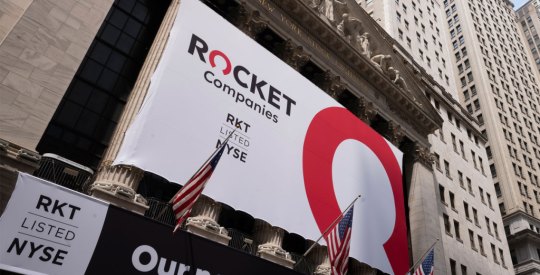Mortgage rates continued to display higher volatility than most are accustomed to in the past week, thanks to a sudden sell-off in residential mortgage-backed securities that has the secondary market embroiled in its latest round of credit crunching. Bankrate.com’s weekly rate survey found that the benchmark 30-year fixed-rate mortgage fell 9 basis points, to 6.32 percent by the morning of March 5. Average rates on a 5-year adjustable-rate mortgage rose slightly in that time frame, increasing 4 basis points to 5.72 percent, according to the survey. But that was before Wednesday’s wild sell-off in RMBS led mortgage rates to jump dramatically. Bankrate.com’s Holden Lewis said Thursday that had the company’s rate data been collected in the afternoon rather than in the morning, the benchmark rate would have been up 15 to 20 basis points. That’s a swing of nearly 30 basis points in one day. For a traditional fixed-rate mortgage. What kind of mad, mad world is this? While many are at a loss to explain the swing, sources in the bond market have suggested to Housing Wire that the process of “deleveraging” has picked up steam after UBS AG, Europe’s largest bank by assets, allegedly dumped more than $24 billion of Alt-A U.S. RMBS for 70 cents on the dollar. (See earlier coverage here). The result, sources say, is a selling spree that’s even reaching into agency-backed securities issued by Fannie Mae and Freddie Mac. Housing Wire reported earlier this week that agency MBS spreads reached levels this week not seen since the mid-1980s. Reuters’ Al Yoon also picks up the trail, noting that the quickened pace of deleveraging has sent credit markets reeling:
Fund managers with ample cash are holding back from purchases of securities for fear prices will fall further, exposing them to scorn of their shareholders, analysts said. “It’s a combination of intense scrutiny from regulators and stockholders as to how these solid firms commit their capital, and that people who like valuations have a hard time keeping up with the news flow and pricing,” said Jim Vogel, a strategist at FTN Capital Markets in Memphis, Tennessee. “It helps explain half of the deleveraging side, which is why people aren’t picking up bargains.” Agency MBS, which are seen as having little credit risk relative to mortgage bonds sold by other companies, are being sold partly because the $4.5 trillion market is one of the most liquid, or easily traded, next to Treasuries, analysts said.
To put the rate picture into plain English: deleveraging means funds and investors are dumping holdings to prevent themselves from being subject to margin calls they likely can’t meet. Add to the pot some incredibly strong pricing pressure, which widens even option-adjusted spreads to near-record levels, and mix in a general lock-up in the secondary market outside of the GSEs, and you have the perfect recipe for mortgage rate volatility.



